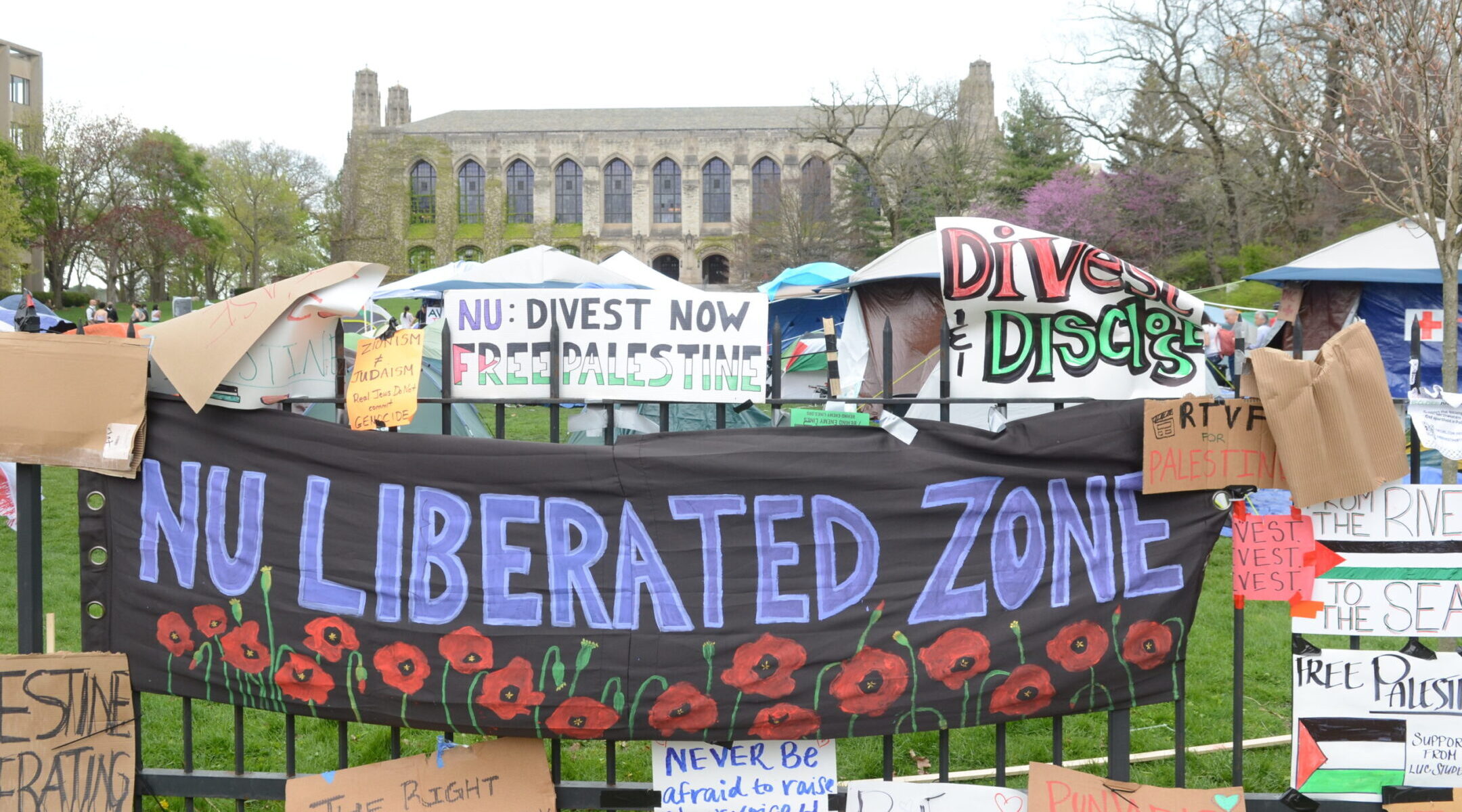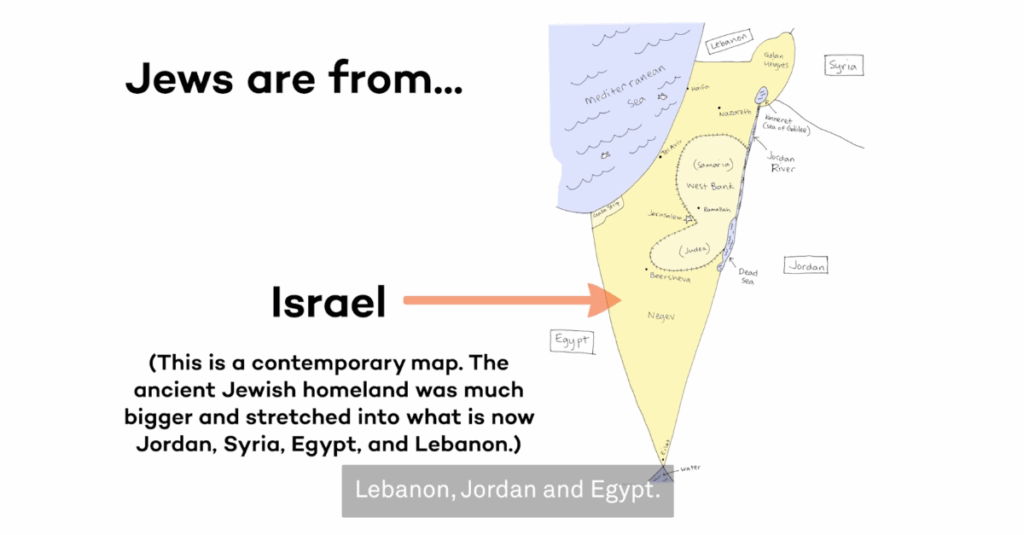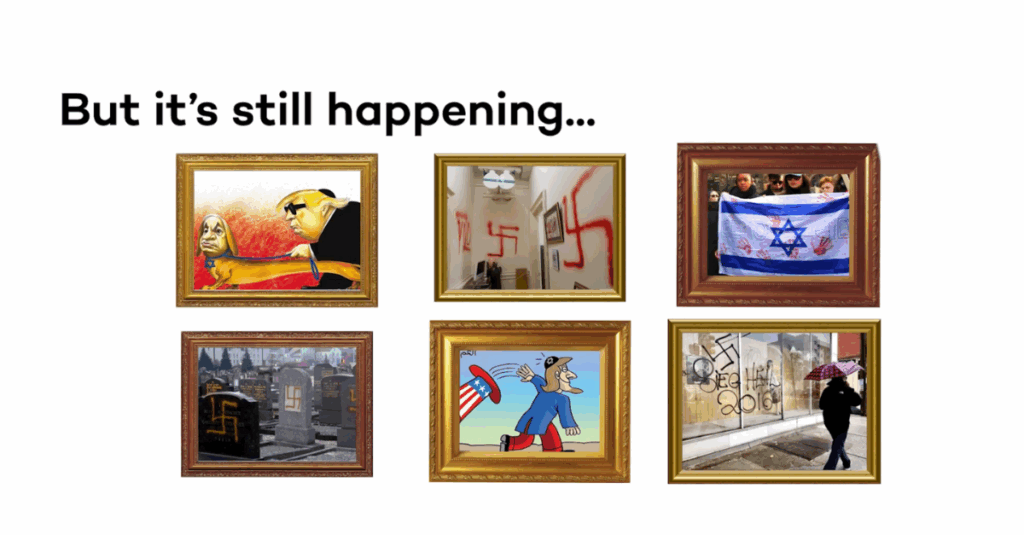Hundreds of Northwestern students can’t register for class because they won’t watch an antisemitism training video. Here’s what’s in it.
The video says quotes from ‘anti-Israel activists’ and David Duke are ‘the same’

Students and residents camp outside Northwestern University during a pro-Palestinian protest in April 2024. Photo by Jacek Boczarski/Anadolu via Getty Images
At least 300 students at Northwestern University were barred from registering for classes this month after refusing to watch a video about antisemitism that protesters say ignores Palestinian perspectives and “ostracizes anti-Zionist Jews.”
Northwestern required students to watch anti-bias training about Muslims, Arabs and Palestinians produced in partnership with the Inclusion Expert, and a video about antisemitism, before registering for classes in mid-September.
The Jewish United Fund developed the antisemitism video specifically for use at Northwestern University. It is not currently being used at other campuses, said Dan Goldwin, Chief Public Affairs Officer at JUF, the Jewish Federation of Chicago.
This isn’t the first time the Chicago nonprofit has been involved in campus controversies. Last spring, the JUF wrote a letter to Northwestern president Michael Schill slamming him for negotiating with pro-Palestinian protesters in encampments. Schill announced earlier this month that he would resign, citing “painful challenges” facing the university during his tenure.
Other schools are using new training around antisemitism. Several universities — including Harvard, Columbia, and the City University of New York — have adopted training after federal funding losses tied to Trump administration allegations of campus antisemitism. The content varies: Some schools rely on the Anti-Defamation League, while others turn to Project Shema, a program created by self-described progressive Jews that explores “how anti-Jewish ideas and implicit biases can be carried alongside conversations about Israel and Palestine.”
In a March email to students, Northwestern said that the new mandatory training “will adhere to federal policy including President Donald Trump’s 29 January executive order, ‘Additional Measures to Combat Anti-Semitism.’”
What’s in the video?
The Forward reviewed the 17-minute video, “Antisemitism Here/Now.” The video’s narrator is unnamed, identified only on screen as a rabbi affiliated with the JUF. He appears to be Jonathan Posner, a rabbi at Metro Chicago Hillel.
The video opens with a disclaimer: “Jewish people have lots of views and beliefs. There are Jews who will disagree with this content.” Still, it asserts that the training “speaks for the vast majority of our community.”
Early on, the speaker states that “the Jewish people are from the land of Israel,” describing it as historically larger than the modern state of Israel and extending into present-day Jordan, Syria, Egypt, and Lebanon.
As he speaks, a map appears showing the Golan Heights as part of Israel. Israel captured the territory from Syria in the 1967 Six-Day War, and while the U.S. officially recognizes Israeli sovereignty there, most countries do not. On most maps, the area is marked with a dashed line to indicate the disputed border. The West Bank is labeled as such, with “Judea and Samaria” — the biblical name used by the Israeli government — in parentheses. The Gaza Strip is also labelled.

Goldwin said the purpose of the hand-drawn map “was to orient people. This is the part of the world we’re talking about. This is where the Jewish community hails from, our ancestral homeland. It was not meant to be a real, direct political delineation of the borders.”
Later, the video defines anti-Zionism as “the opposition to the Jewish right of self-determination.” The speaker adds that “anti-Zionism also takes many forms, most of which are antisemitic because they work against Jewish human rights.”
He then asks viewers to consider eight quotes: four from “anti-Israel activists,” and four from David Duke of the Ku Klux Klan.

“The fact that you can’t tell the difference is terrifying,” he says. “The thing is, to most Jewish people, they feel the same, because they are the same.”
Critics of the training argue the comparison equates pro-Palestinian activism with white supremacy and unfairly presents those quotes as representative of the broader movement for Palestinian rights.
Goldwin said the quotes are not meant to define how all pro-Palestinian activists feel, but instead show “the rhetoric that has been adopted by extreme left wing — not just people who are liberal, but extreme left wing — has begun to sound a lot like, and in many ways, is indistinguishable from the rhetoric from the far right.”
Another slide, titled “But it’s still happening…”, shows six images the video classifies as modern antisemitism, including a cartoon of Trump holding a leash with Netanyahu as a dog, graffitied swastikas, and an Israeli flag with the word “genocide” and bloody handprints.

How are students reacting?
Northwestern Students for Justice in Palestine has been calling on students to boycott the training since February. Last month, an open letter to administrators detailing concerns with the training garnered 220 signatures. And last week, about a dozen students held a protest on campus speaking out against the training.
Critics say the training effectively requires students to adopt the position that there is no room for anti-Zionism among Jews.
“These premises threaten to make the campus an even less welcoming space for Jewish students, who will not be able to express their own closely-held views on Israel or Palestine if they are contrary to Zionism as expressed in the training,” the letter reads.
Still, the vast majority of the universities’ roughly 8,000 undergraduate and 14,000 graduate students completed the training. Former Hillel president Sari Eisen told The Daily Northwestern in March that she found the video to be valuable.
“All students should have to go through this training and think about how it relates to events on campus and events out in the world,” Eisen told the Daily.
The current Hillel president, Claire Conner, declined to comment to the Forward.
In a statement to the Forward, Northwestern said “students are not required to agree with the training modules,” only to watch them. However, students “must attest that they will abide by the Student Code of Conduct, as well as the University’s policy on Discrimination, Harassment and Sexual Misconduct. Students have received regular reminders of this requirement over the last several months.”
Goldwin also distinguished between watching a video as a condition of class registration versus requiring students to endorse its contents.
“In the open marketplace, there are certainly going to be people who disagree with us. I’m sure there are people who disagree on some of the content when it comes to the video about Islamophobia, or the video about racial discrimination,” he said, adding “we can’t make everybody happy all the time.”
















